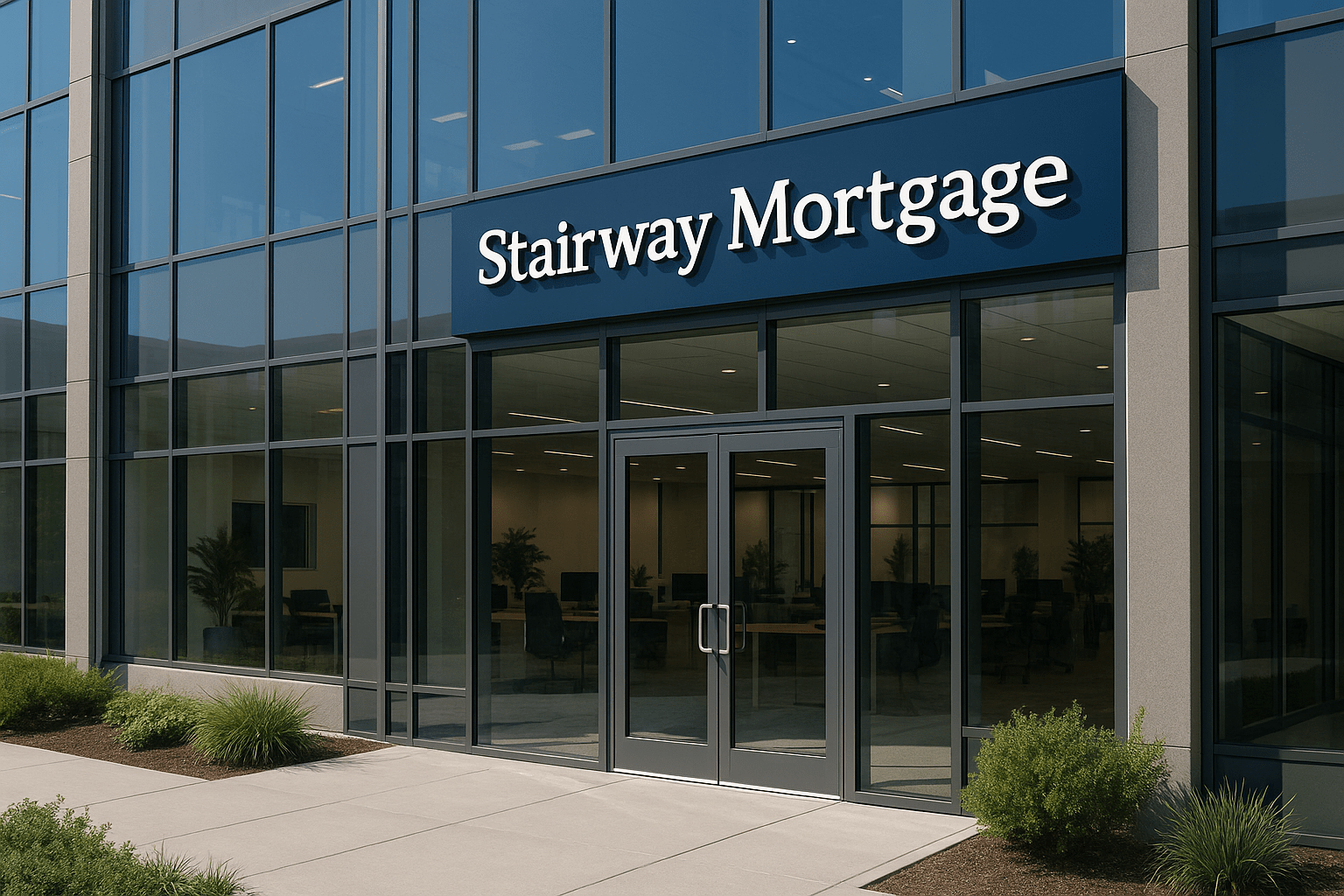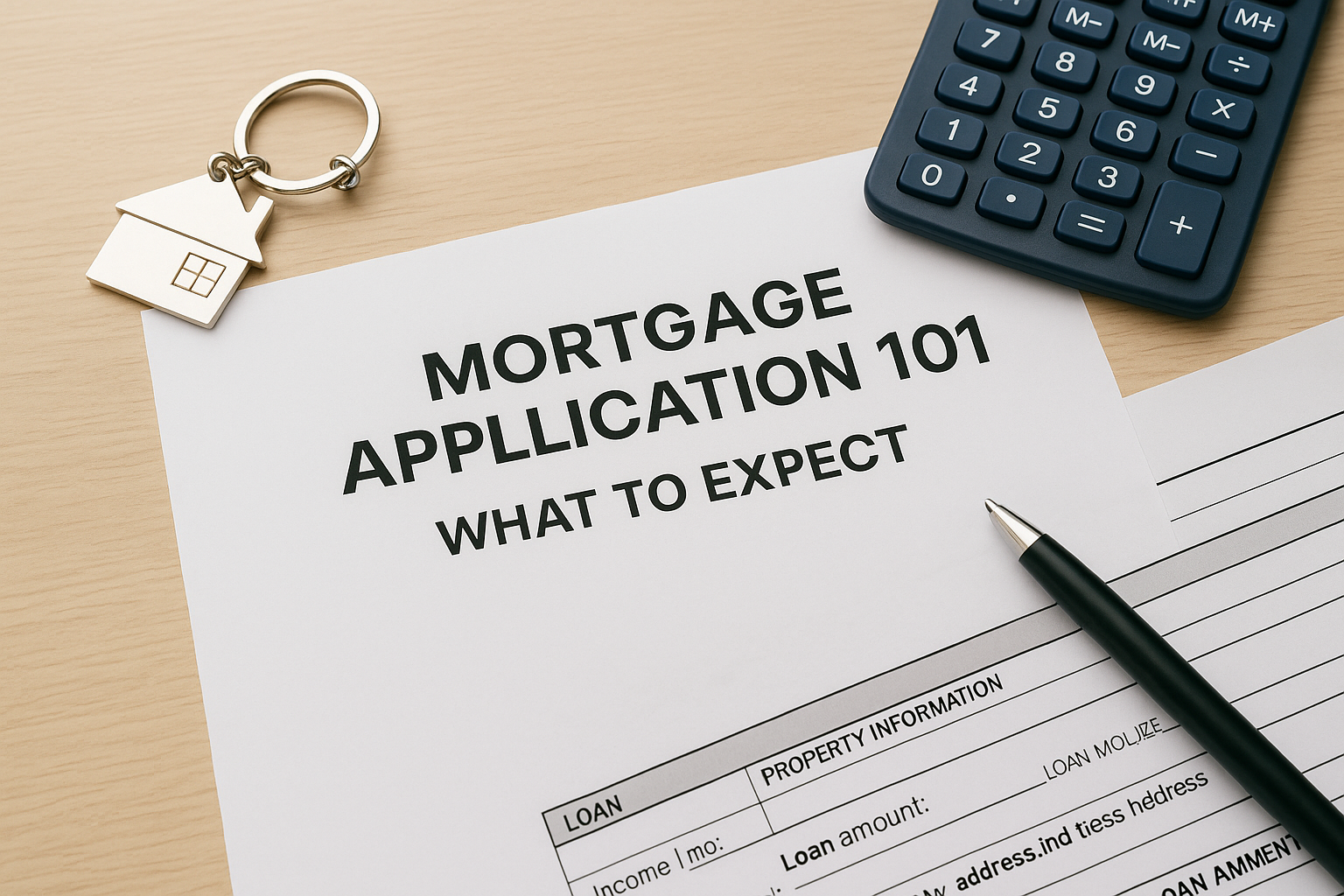How to Make an Offer on a House: Winning in Competitive Markets
How to Make an Offer on a House: Winning in Competitive Markets

How to Place an Offer on a House That Gets Accepted
Making an offer on a house isn’t just filling out a form with a price. In competitive markets, multiple buyers compete for the same property, and only one offer wins. The difference between offers that get accepted versus those that lose comes down to strategy—understanding what sellers want, how to structure your offer competitively, when to push and when to compromise, and how to stand out without overpaying.
Here’s what makes an offer strategy actually work in competitive markets:
In this guide, you’ll discover:
- The five components of every offer and how each affects your competitiveness
- When escalation clauses help you win versus when they work against you
- Which contingencies you must keep versus which you can waive strategically (following CFPB consumer protection guidelines)
- How to make your offer stand out beyond just offering the highest price
- Real strategies that win offers without requiring you to waive all protection or massively overpay
The difference between a strategic offer and a desperate one determines whether you win the house at fair price or lose repeatedly to better-positioned buyers.
Ready to make an offer? Schedule a call to ensure your pre-approval and offer strategy align for maximum competitiveness.
The Five Components of Every Real Estate Offer
Every offer contains five key elements that sellers evaluate. Understanding how each component affects your competitiveness lets you optimize your entire offer package.
1. Purchase Price
The most obvious component, but not always the most important. In markets with multiple offers, highest price doesn’t automatically win.
How sellers evaluate price: They compare your offer to listing price, other offers received, and market comparables. Offer significantly below asking in competitive market? You’re eliminated immediately. Offer at or slightly above asking with strong terms? You’re competitive.
Strategic pricing: Don’t assume you must offer substantially over asking to win. Strong offer at asking price with good terms often beats weak offer at higher price with problematic terms or contingencies.
The appraisal gap consideration: If you offer significantly over asking, you must address appraisal gap. Will you pay difference in cash if home appraises for less than offer price? If not, your high offer is hollow—it won’t close if appraisal comes in low.
Use FHA loan calculator or conventional loan calculator to verify you can actually afford the price you’re offering, including potential appraisal gap.
2. Earnest Money Deposit
Money you put down when offer is accepted to show you’re serious. Typically held in escrow and applied to down payment at closing.
Standard amounts: Usually a small percentage of purchase price. Exact amount varies by market—check local norms with your agent.
How this affects competitiveness: Larger earnest money deposit signals stronger commitment. If you’re competing with another offer at same price, larger earnest money can tip scales in your favor. Shows seller you have funds and you’re unlikely to walk away.
The risk: If you back out for reasons not covered by contingencies, you forfeit earnest money. Only offer what you’re comfortable risking.
3. Contingencies
Conditions that must be met for sale to proceed. These are your protection clauses—but they also make your offer less attractive to sellers.
Standard contingencies:
Financing contingency: Sale only proceeds if you actually get approved for mortgage. Protects you if loan falls through but worries sellers that deal might collapse.
Inspection contingency: You can back out or renegotiate if inspection reveals problems. Essential protection but sellers prefer offers without it.
Appraisal contingency: You can back out if home doesn’t appraise for purchase price. Protects you from overpaying but makes sellers nervous about deal falling through.
Sale of current home contingency: Only relevant if you’re selling existing home to fund purchase of new one. Makes your offer very weak because seller must wait for your sale.
How contingencies affect competitiveness: Every contingency you include makes your offer less attractive. In competitive markets, buyers waive contingencies strategically to win. However, waiving wrong contingencies can leave you trapped in bad deals.
We’ll cover which contingencies you can safely waive and which you must keep later in this guide.
4. Closing Timeline
When you can close affects seller’s decision, sometimes more than price.
Why timeline matters: Seller might need to close quickly to move for new job. Or they might need time to find their next home. Your ability to accommodate their timeline can win the offer.
Financing affects timeline: Cash offers close fastest (7-10 days possible). Conventional loans typically close faster than FHA loans. FHA versus conventional affects not just your rates but your competitiveness on timeline.
The strategy: Ask your agent what closing timeline seller prefers. If you can accommodate, it strengthens your offer even if your price isn’t highest.
5. Additional Terms and Considerations
Everything beyond the basic numbers—and sometimes these make the difference.
Rent-back agreement: You let seller stay in home after closing for period of time, paying you rent or staying for free. If seller needs time to move, offering rent-back can win your offer.
As-is purchases: You agree to buy property in current condition without requesting repairs. Removes seller’s concern about negotiating after inspection.
Personal letter: Some agents advise writing letter to seller explaining why you love the home. Effectiveness varies—some sellers love these, others ignore them, some markets consider them problematic for fair housing reasons. Check with your agent.
Proof of funds: Showing you have cash for down payment and closing costs proves you’re ready to close. Strong pre-approval plus bank statements showing funds removes seller doubt.
Getting pre-approved for FHA or conventional loan before making offers is non-negotiable. Without strong pre-approval, your offer won’t be taken seriously.

When to Use Escalation Clauses (And When to Avoid Them)
Escalation clauses automatically increase your offer if competing offers come in higher, up to your maximum price. They’re powerful tools in competitive markets—but misused, they backfire.
What Is an Escalation Clause?
You offer a base price but include escalation clause stating you’ll beat any other offer by specific increment, up to your maximum price.
Example: You offer base price with escalation clause stating you’ll beat highest competing offer by increment up to maximum cap. If another buyer offers more than your base, your offer automatically increases to beat theirs by the increment, as long as it doesn’t exceed your cap.
How sellers use this: If seller receives multiple offers, they review escalation clauses to see who will go highest. Your maximum cap becomes your actual offer price if competing offer reaches that level.
When Escalation Clauses Help You Win
In markets with consistent multiple offers: When properties routinely receive 5-10 offers, escalation clauses let you compete without guessing what others will offer.
When you’re certain of your maximum: You know exactly what you’re willing to pay. Escalation clause ensures you don’t lose by offering just below that, while also ensuring you don’t overpay if other offers are lower.
When you’re competing against similar buyers: Other buyers also have escalation clauses. Whoever has highest cap wins.
When seller reviews all offers fairly: Escalation clauses work when seller and listing agent actually use them as intended—to find highest price while giving all buyers fair shot.
When Escalation Clauses Hurt You
When you’re the only offer or one of few: If seller only receives 1-2 offers, escalation clause reveals your maximum willingness to pay without requiring seller to have competing offer to push you there. Better to just offer your best price initially.
When seller uses your escalation to leverage other buyers: Some sellers share your escalation details with other buyers to encourage them to bid higher. This is ethically questionable but happens. Your escalation clause becomes tool for seller to bid buyers against each other.
When your escalation increment is too high: Increment set too large means you might end up paying much more than necessary to beat competing offer.
When market is declining or properties sit long: Escalation clauses are for competitive markets. If property has been on market for weeks, you don’t need escalation—you need negotiation strategy.
How to Structure Escalation Clauses Effectively
Keep increment small: Beat competing offers by minimum increment that makes sense. If market typically sees offers in increments, use that. Small increment means you don’t overpay unnecessarily.
Set realistic maximum: Your cap should be highest you’d actually pay, not wishful thinking. If your cap is reached, you pay that amount—be comfortable with it.
Require proof of competing offer: Good escalation clauses state seller must provide proof of competing offer price for your escalation to trigger. Prevents seller from falsely claiming higher offer to increase your price.
Combine with strong terms: Escalation clause on price plus good terms (fewer contingencies, flexible closing, larger earnest money) creates powerful offer package.
Have backup plan: If your escalation is triggered and you’re at maximum cap but still lose to another buyer, be prepared to move on or decide if you’ll revise offer higher.
Which Contingencies to Keep and Which to Waive
Contingencies protect you from bad deals—but they also make offers weaker. Strategic buyers know which protections they can’t sacrifice and which they can waive safely.
The Financing Contingency: Usually Keep It
Financing contingency states the sale only proceeds if you actually get final mortgage approval. Without it, if your loan falls through for any reason, you lose earnest money and potentially get sued by seller.
When to keep it: Almost always. Even with strong pre-approval, final underwriting can reveal issues. Job change, new debt, credit problems, property appraisal issues—many things can kill loans. Financing contingency protects you.
When you might waive it: Only if you’re absolutely certain financing will close. Strong pre-approval, stable employment, no credit changes, substantial reserves, and willingness to pivot to cash or alternative financing if needed. Most first-time buyers should NOT waive financing contingency.
How to make it more attractive while keeping it: Shorten contingency period. Standard might be 21 days. Offer 14 or 10 days if your lender can move quickly. Shows seller you’re confident while maintaining protection.
The Inspection Contingency: Strategic Decision
Inspection contingency lets you back out or negotiate if inspection reveals problems. This is your opportunity to discover major issues before committing.
When to keep it: When buying older homes, properties with red flags, or when you lack cash reserves to handle surprise repairs. Inspection contingency is crucial protection for first-time buyers without emergency funds for unexpected fixes.
When you might waive it: When property is newer or recently renovated, you’ve done extensive pre-offer research, and you’re comfortable accepting whatever condition exists. But even then, consider risks carefully.
The compromise approach: Include inspection contingency but state you’ll only renegotiate for major issues, not minor repairs. Or include inspection for information only—you’ll inspect but won’t back out or negotiate based on findings. This protects you from catastrophic problems while showing seller you’re not going to nickel-and-dime them over minor items.
Alternative strategy: Get pre-offer inspection. Hire inspector before making offer. You know condition before offer, so you can offer accordingly and waive inspection contingency with confidence. Costs you inspection fee upfront but makes offer much stronger.
The Appraisal Contingency: Proceed with Caution
Appraisal contingency states you can back out if home doesn’t appraise for purchase price. Protects you from paying more than property is worth.
When to keep it: When you’re offering at or above asking price and have limited cash reserves. If appraisal comes in low, you’d need to pay difference in cash or renegotiate price. If you can’t pay gap, appraisal contingency lets you exit.
When you might waive it: Only when you have substantial cash reserves and you’re prepared to pay difference if appraisal comes in lower than offer price. This is substantial risk—waiving appraisal contingency means you’re committed regardless of what appraiser determines property is worth.
The compromise: Include appraisal contingency but state you’ll cover appraisal gap up to certain amount. Example: “Buyer will cover appraisal gap up to [amount].” This shows seller you have some skin in game while protecting you from massive overpayment.
Use calculators to see what appraisal gap you could cover: FHA calculator, conventional calculator.
The Home Sale Contingency: Almost Never Acceptable
This contingency states your purchase is contingent on successfully selling your current home. It makes your offer extremely weak because seller must wait indefinitely for your sale.
When to include it: Only if you absolutely cannot purchase without selling current home AND market is so slow that seller will consider it. Most competitive markets won’t accept offers with home sale contingency.
Alternatives: Bridge loans, home equity loans, or other financing that lets you buy before selling. Talk to lender about options. Or rent your current home instead of selling immediately.
For most first-time buyers, home sale contingency isn’t relevant since you’re coming from rental. But understanding it helps you recognize when competing buyers have this weakness in their offers.
How to Make Your Offer Stand Out Beyond Price
In competitive markets where multiple buyers offer similar prices, non-price factors determine winners. Strategic buyers optimize the entire offer package.
Present Yourself as the Easy, Certain Buyer
Strong pre-approval letter from reputable lender: Generic online pre-qualification means nothing. Get real pre-approval from mortgage broker or bank, with documentation reviewed and credit checked. Have lender write strong letter specifically for property you’re making offer on.
Getting pre-approved shows you’re serious and ready to close.
Proof of funds documentation: Bank statements or asset statements showing you have money for down payment and closing costs. Removes seller doubt about your ability to close.
Clean offer with minimal contingencies: Fewer contingencies = less that can go wrong = more attractive to seller. Every contingency you remove (strategically) increases attractiveness.
Professional presentation: Your agent should present offer professionally—clean, organized, easy for seller to review. Amateur-looking offer suggests amateur buyer who might cause problems.
Accommodate the Seller’s Needs
Flexible closing date: Ask your agent what timing seller prefers. Need to close quickly? Can you do it? Need extra time? Can you wait? Matching seller’s preferred timeline can win deal.
Rent-back or early possession: Offer to let seller stay in home after closing if they need time to move. Or offer to let them leave early before closing if beneficial to them. Flexibility on possession timing can be worth thousands to sellers in transition.
Minimal repair requests: Signal that you won’t nitpick over minor inspection findings. Mention in offer that you expect to handle normal wear and tear repairs yourself. Sellers tired of buyers requesting hundreds in petty repairs will appreciate this.
As-is purchase consideration: If property is in good condition and you’re comfortable with it, offering to buy as-is removes seller’s worry about post-inspection negotiation. Huge competitive advantage.
Build Trust and Connection
Personal letter (if appropriate): In some markets, letter to seller explaining why you love home and how you’d care for it resonates with sellers. Some find it manipulative, others find it touching. Check with your agent on local customs.
Quick response times: When seller has questions or needs info, respond immediately. Buyers who ghost or delay raise red flags. Responsive communication builds seller confidence.
Proof you’re not investor: If seller wants home to go to owner-occupant family, make that clear. First-time buyers purchasing primary residence are often preferred over investors.
Work with Strong Representation
Experienced buyer’s agent: Agent with track record of winning offers knows how to position your offer strategically. Their reputation with listing agents matters—if your agent is known for difficult transactions, that hurts you.
Communication with listing agent: Your agent should communicate well with listing agent, understanding seller’s priorities and concerns. Good agent relationships help navigate negotiations.

Common Offer Mistakes First-Time Buyers Make
Even well-intentioned buyers sabotage their offers through preventable mistakes.
Lowballing in Competitive Markets
The mistake: Offering significantly below asking price when property is correctly priced or underpriced in hot market. You think you’re negotiating smartly. Seller thinks you’re insulting or out of touch.
Reality check: Lowball offers work in slow markets or with overpriced properties. In competitive markets with multiple offers, lowball offers are immediately rejected. You don’t even get counteroffer—you’re just eliminated.
The fix: Use ideal home search strategies to understand market comparables. Offer competitively at or above asking if comps support listing price.
Maxing Out Your Pre-Approval Amount
The mistake: Getting pre-approved for maximum amount bank will lend, then offering full pre-approval amount even though that stretches your budget painfully.
Reality check: Just because you’re approved for certain amount doesn’t mean you should spend it. You need cushion for closing costs, moving expenses, furniture, repairs, and emergencies.
The fix: Calculate comfortable payment including taxes, insurance, HOA, and maintenance before making offers. Offer what you can sustainably afford, not maximum lender will give you.
Including Unrealistic Contingencies
The mistake: Adding contingencies that are red flags to sellers—like right to back out for any reason, or contingency on getting parents’ approval, or requirement to sell multiple properties first.
Reality check: Every contingency makes offer weaker. Unusual or overly broad contingencies mark you as risky buyer.
The fix: Include only standard, reasonable contingencies. If you need parents’ approval, get it before making offer. If you need to sell properties, do that first or get bridge financing.
Submitting Late or Incomplete Offers
The mistake: Missing offer deadline because you couldn’t decide on price, or submitting offer missing required documents like pre-approval letter or proof of funds.
Reality check: Sellers often review offers on specific timeline. Late offers might not get considered. Incomplete offers suggest disorganized buyer who will cause problems.
The fix: Have pre-approval, proof of funds, and earnest money ready before starting search. When you find property, you can move quickly. Work with your agent to ensure offer is complete and submitted before deadline.
Forgetting About Closing Costs and Cash Reserves
The mistake: Offering to pay appraisal gap or waive contingencies without having actual cash reserves to back those commitments.
Reality check: Your offer might get accepted, but if you can’t actually close because you don’t have funds you committed to, you lose earnest money and potentially face legal issues.
The fix: Before making aggressive offer, verify you have cash for everything you’re committing to: down payment, closing costs, earnest money, potential appraisal gap, inspection and repair costs.
Use closing costs calculator to understand complete cash needed.
How Stairway Mortgage Helps You Make Winning Offers
Strong financing position is foundation of competitive offers. Weak pre-approval undermines every other aspect of your offer strategy.
We provide pre-approval letters that listing agents respect. Generic online pre-qualifications carry no weight. Our pre-approval letters show you’re actually qualified, not just estimated by algorithm. We’ve reviewed your documentation, checked your credit, and know you’ll close.
We explain how FHA versus conventional affects offer competitiveness. FHA loans have stricter property condition requirements that worry some sellers. Conventional loans often close faster. Understanding these differences helps you position offers strategically.
We work with your timeline to close quickly when needed. If your offer is competitive on price and terms, fast closing timeline can seal the deal. We move quickly when you need us to, not on our convenient schedule.
We help you understand what you can actually afford. Making offer you can technically qualify for but can’t comfortably pay is recipe for stress and potential default. We help you find the sustainable purchase price that still lets you compete.
Your offer strategy starts with your financing strategy.
Ready to get pre-approved so you can make competitive offers? Schedule a call to discuss your financing position and offer readiness.
Ready to Make an Offer That Wins?
You understand the five components of competitive offers. You know when to use escalation clauses and which contingencies you can safely waive. Time to execute.
Two weeks before making offers: Get full pre-approval (not just pre-qualification), verify your cash available for earnest money and closing costs, research recent comparable sales in target area, discuss offer strategy with your agent.
When you find your property: Determine competitive offer price using comparables, decide which contingencies to include, structure terms that accommodate seller’s needs, prepare complete offer package with all required documents.
After offer is submitted: Respond quickly to seller questions or requests for additional information, be prepared to negotiate if you get counteroffer, have backup plan if your offer isn’t accepted.
If offer is accepted: Move immediately on contingency deadlines (inspection, appraisal, final loan approval), maintain communication with lender to ensure smooth closing, continue searching for backup properties until you’re in escrow.
For more guidance on the complete process, see our first-time buyer checklist and what to expect at closing.
Making offers is emotional and stressful. But with strong financing, clear strategy, and realistic expectations, you’ll win the right property at fair price.
Frequently Asked Questions
How much should I offer on a house?
Offer price depends on market conditions, property condition, and comparable sales. In balanced markets, starting at or slightly below asking is reasonable for negotiations. In competitive markets with multiple offers, you’ll likely need to offer at or above asking to be considered. Research recent sales of comparable properties in the neighborhood—what’s current price per square foot? How quickly do properties sell? Use that data to determine competitive offer. Your agent should provide comparative market analysis showing recent comps.
What happens after I make an offer on a house?
Seller reviews your offer and either accepts, rejects, or counters. If they counter, you can accept their counteroffer, reject it, or counter back. Once you and seller agree on terms, you’re “under contract.” Then contingency period begins—you schedule inspection, appraisal happens, lender completes final underwriting. You satisfy contingencies or negotiate based on findings. If everything clears, you proceed to closing. See what happens at closing for final steps.
Should I offer asking price or lower?
Depends on market and how long property has been listed. Fresh listing in competitive market? Offering below asking means you’ll lose to buyers offering at or above asking. Property sitting for weeks in slow market? Offering below asking is reasonable starting point for negotiations. Overpriced listing with recent price reduction? Offering below asking makes sense. Check comparable sales—if listing price aligns with comps, offer accordingly. If listing is overpriced based on comps, adjust your offer downward.
Can I back out after making an offer?
Before seller accepts, yes—you can withdraw offer anytime. After seller accepts and you’re under contract, it depends on contingencies. If you have financing, inspection, or appraisal contingencies, you can back out for reasons covered by those contingencies without losing earnest money. If you back out for reasons not covered by contingencies, you forfeit earnest money and potentially face legal issues. This is why maintaining strategic contingencies matters. See FHA vs conventional loan contingencies for how loan types affect this.
What is earnest money and how much should I offer?
Earnest money is deposit showing you’re serious buyer. It’s held in escrow and applied to down payment at closing. Standard amount is typically a small percentage of purchase price, but varies by local market. Larger earnest money deposit makes your offer more competitive but also increases your risk if you back out for reasons not covered by contingencies. Check with your agent on local norms. Don’t offer more earnest money than you’re comfortable risking.
How long do sellers take to respond to offers?
Sellers often set offer review date for multiple offers. If you submit offer before that date, expect to wait until review date for response. For properties not setting formal offer deadline, sellers typically respond within 24-48 hours. If you haven’t heard back in 2-3 days, your agent should follow up with listing agent. In hot markets, sellers might review offers same day or next day. Being patient but ready to respond quickly if you get counteroffer is important.
Also Helpful for First-Time Home Buyers
Making competitive offers connects to your entire buying strategy:
- First Time Homebuyer Checklist: Are You Ready? – Before making offers, ensure you’re actually ready to buy and close on a home.
- FHA vs Conventional: Which Gets You In Faster? – Your loan type affects offer competitiveness, property requirements, and closing timeline.
- Ideal Home: The Search Strategy That Works – Finding the right property comes before making strategic offers on it.
What’s Next in Your Journey?
You’ve made your offer—now prepare for what comes next:
Understand your financing: Review your FHA loan or conventional loan terms and contingency timelines.
Calculate your budget: Use mortgage calculators to verify monthly payments fit your budget comfortably.
Learn from others: Read case studies of first-time buyers who successfully navigated competitive offer situations with FHA or conventional financing.
Explore Your Complete Options
Ready to make offers that win?
Browse all loan programs to understand options from FHA to conventional to VA.
Use all calculators to model different scenarios and verify affordability.
Explore all case studies to see how real buyers made winning offers.
Schedule a call with a loan advisor who will ensure your pre-approval positions you competitively for offers.
Making winning offers starts with strong financing. Get that foundation right, and your offer strategy can shine.
Need a Pre-Approval Letter—Fast?
Buying a home soon? Complete our short form and we’ll connect you with the best loan options for your target property and financial situation—fast.
- Only 2 minutes to complete
- Quick turnaround on pre-approval
- No credit score impact
Got a Few Questions First?
Let’s talk it through. Book a call and one of our friendly advisors will be in touch to guide you personally.
Schedule a CallNot Sure About Your Next Step?
Skip the guesswork. Take our quick Discovery Quiz to uncover your top financial priorities, so we can guide you toward the wealth-building strategies that fit your life.
- Takes just 5 minutes
- Tailored results based on your answers
- No credit check required
Related Posts
Subscribe to our newsletter
Get new posts and insights in your inbox.







